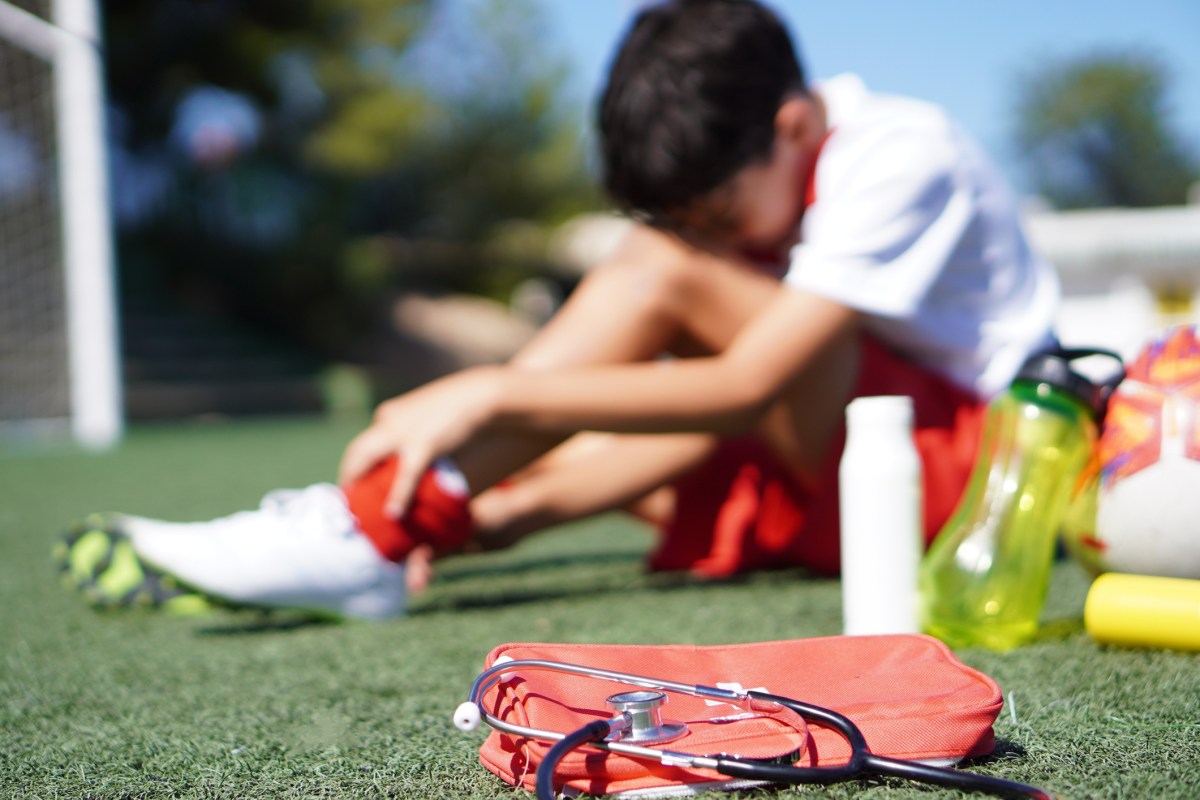As the weather warms and we transition from spring to summer sports, families across the country are eager to get outside. But with increased activity comes the heightened risk of injury and illness.
Dr. Arun Chopra, chair of pediatrics at NYU Grossman Long Island School of Medicine, is urging parents to take proactive steps to keep children safe, healthy and out of the emergency room.
“This is the time of year when we start to see sports-type injuries—fractures, sprains and strains are all very common,” said Chopra. “We have been seeing the [seasonal] spike in allergies, which can interfere with practice and game days if not managed properly.”
Start the Season with a Physical
Before young athletes return to fields, courts and tracks, Chopra recommends scheduling a pre-season physical.
“Getting a sports physical is essential,” he said. “It helps catch underlying issues like asthma or heart conditions that might not be obvious but could cause problems during intense activity.”
Preventing Injuries with Smart Preparation
Summertime enthusiasm often leads kids to overdo it, especially after a sedentary winter and early spring. Chopra stresses the importance of easing into physical activity.
“One of the best things kids can do is warm up properly before exercise and cool down afterward,” he said. “Stretching and gradually increasing intensity helps prevent soft tissue injuries.”
Proper equipment is another critical factor. Chopra advises using the correct footwear, ensuring sports gear fits well and most importantly, always wearing a helmet during activities like biking or skateboarding.
“Helmets are not optional,” he said. “Like seat belts, they save lives. If your child is on wheels, they need a helmet. No exceptions.”
Allergy Season: Don’t Let It Sideline Your Child
Chopra noted that seasonal allergies have been particularly severe this year, with many kids experiencing heightened symptoms due to high pollen counts.
“It seems like a bad season. The pollen count has been pretty high,” he said. “Thankfully, controlling your environment can help a lot. Simple things like showering after coming inside, using air conditioning instead of opening windows and changing your air filters regularly can make a big difference.”
Chopra also explained that allergy prevention may begin in early childhood and is influenced by environmental exposure.
“Kids learn what’s normal by being exposed to it,” he said. “There’s good evidence that children raised in overly sterile environments are more likely to develop allergies. Early exposure to allergens—whether seasonal or food-related—can decrease the risk of developing allergies later on.”
Fueling Performance with Nutrition and Hydration
As young athletes increase their activity levels, fueling their bodies becomes more important. Chopra recommends whole foods over processed snacks and emphasizes staying hydrated, especially in warmer weather.
“Water is best,” he said. “Sports drinks are generally unnecessary unless a child is doing prolonged, intense activity. Regular meals with fruits, vegetables and protein are key to staying strong and energized.”
Sleep and Rest: The Unsung MVPs
Even with a packed schedule of practices and games, sleep should remain a top priority.
“Sleep is when kids recover, both physically and mentally,” Chopra said. “Not getting enough rest increases the risk of injuries, weakens the immune system and affects focus and mood.”
He recommends at least 9 to 11 hours of sleep for younger children and 8 to 10 hours for teens.
Pool Safety and Outdoor Risks
With the official start of summer just a couple of weeks away and beaches and public swimming now open, water safety becomes critical. Chopra warns that drowning is often silent and can happen quickly, even in shallow water.
“Supervision is everything,” he said. “There should always be someone designated to watch the children—and that’s their only job. Not on their phone, not chatting. Just watching.”
He also emphasizes rotating supervision roles every 20 to 30 minutes to avoid fatigue. As for older kids, he advises discussing the dangers of diving into shallow water and the risks of mixing water activities with alcohol or drugs.
Final Word: Be Prepared, Not Panicked
Spring can bring a host of minor setbacks, from allergies to ankle sprains. But with the right precautions, kids can enjoy the season safely.
“This is a great time for kids to be active, connect with friends and enjoy the outdoors,” Chopra said. “Our job as parents and caregivers is to help them do that safely. That means staying informed, being proactive and making safety a part of the routine—not an afterthought.”
Chopra’s advice is clear: gear up, ease in, stay smart—and don’t forget to enjoy the sunshine.































